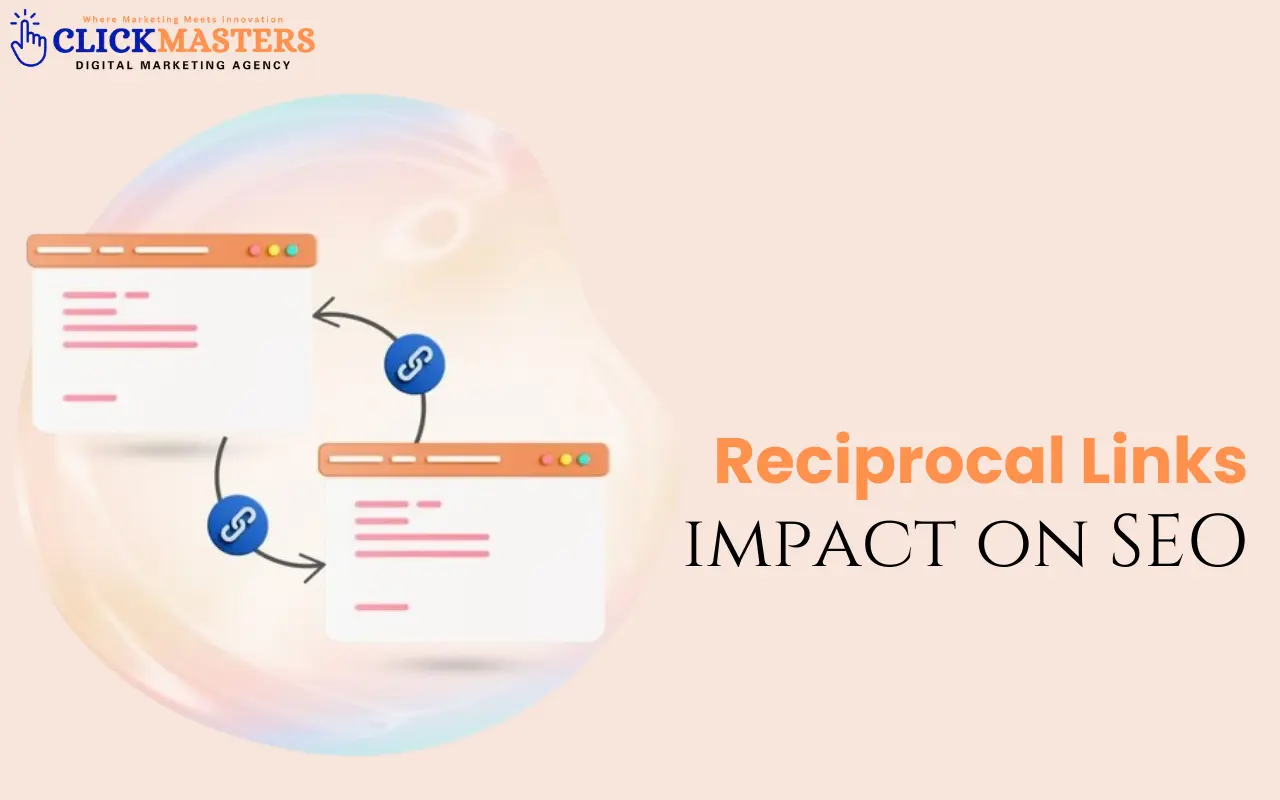What Are Reciprocal Links?
Reciprocal linking is a common Search Engine Optimization (SEO) practice where two websites agree to link to each other. This type of link exchange is often done to boost website visibility, enhance credibility, and improve search engine rankings. For example, if a digital marketing agency links to a web design company and the web design company links back to the agency, that is considered a reciprocal link.
Reciprocal links can naturally occur when two websites share relevant content. However, when done excessively or manipulatively, it can raise concerns for search engines like Google. Understanding the nuances of reciprocal linking can help website owners make informed decisions about their link-building strategies.
Reciprocal Links vs. Link Exchanges
While Mutual backlinks and link exchanges are sometimes used interchangeably, they have subtle differences:
Reciprocal Links:
These occur when two websites naturally link to each other due to shared relevance, trust, or partnership. For example, a content marketing blog links to an SEO tool provider and vice versa.
Link Exchanges:
This is a more structured approach where multiple websites intentionally swap links, sometimes in an artificial way. Excessive or low-quality link exchanges can be seen as an attempt to manipulate rankings and may be penalized by Google.
Reciprocal linking should be a natural and valuable addition to your content rather than an artificial effort to boost rankings.

How Our Agency Boosts Your Website Traffic
- SEO That Brings Long-Term Success
- Transform Your Traffic into Loyal Customers
- SEO Strategies for Sustainable Growth
Are Reciprocal Links Good or Bad for SEO?
Reciprocal links can have both positive and negative effects on SEO. Let’s explore both sides:
Positive Effects of Reciprocal Links:
- Improved Website Authority: When authoritative and relevant websites link to each other, it enhances credibility and trustworthiness.
- Increased Referral Traffic: If a website links to yours and drives visitors who find your content useful, it improves user engagement and conversions.
- Enhanced User Experience: When Mutual backlinks provide valuable resources to users, they contribute to a positive browsing experience.
- Better Industry Networking: Linking to industry-relevant sites helps build relationships, partnerships, and collaborations.
Negative Effects of Reciprocal Links:
- Google’s Algorithm Updates: Search engines continuously update their algorithms to detect manipulative link schemes, which could result in penalties.
- Risk of Spammy Links: Engaging in excessive or irrelevant reciprocal linking can lead to lower rankings and trust issues.
- Low-Quality Backlinks: If your website receives links from non-authoritative or unrelated sources, it can harm your SEO efforts.
What Does Google Say About Reciprocal Links?
Google’s guidelines state that excessive reciprocal linking can be considered a manipulative practice, especially if it is done solely for SEO benefits rather than for providing value to users.
In Google’s Webmaster Guidelines, it is mentioned that “excessive link exchanges (Link to me and I’ll link to you) or partner pages exclusively for the sake of cross-linking” can lead to penalties.
However, Google also acknowledges that Mutual backlinks occur naturally when sites genuinely link to relevant sources. The key is moderation and relevance. Websites should focus on linking organically rather than engaging in mass link-swapping campaigns.

Best Practices for Reciprocal Links (and All Links)
To ensure reciprocal linking benefits your SEO and does not result in penalties, follow these best practices:
Prioritize Quality Over Quantity
Always exchange links with authoritative, trustworthy, and relevant websites. A few high-quality mutual backlinks are far better than numerous low-quality ones.
Make Links Natural and Contextual
Ensure that mutual backlinks are placed within valuable content, adding to the user experience rather than appearing forced or artificial.
Avoid Excessive Link Exchanges
If Google detects excessive reciprocal linking or mass link exchange programs, it may flag your website. Keep link exchanges organic and meaningful.
Use NoFollow When Necessary
For links that may appear suspicious or overly promotional, consider using the rel="nofollow" attribute to indicate to search engines that the link should not pass SEO value.
Monitor Your Backlink Profile
Regularly check your website’s backlink profile using tools like Google Search Console, Ahrefs, or SEMrush to identify and disavow harmful links if necessary.
Focus on Content-Driven Linking
If you produce high-quality content, natural reciprocal linking will occur as others reference your work, reducing the need for manual link exchanges.
Ensure Relevance Between Linked Sites
Mutual backlinksshould always be relevant to the industry or niche. For example, an SEO agency linking to a graphic design firm is logical, while an SEO agency linking to a car repair website may not be.
Build Quality Links to Improve Your SEO
Reciprocal linking is just one part of a broader link-building strategy. Here are other effective ways to build quality links that enhance your SEO:
Guest Posting on High-Authority Websites
Writing guest articles for reputable websites in your niche can help you gain valuable backlinks naturally.
Creating Link-Worthy Content
Developing in-depth guides, research studies, infographics, and case studies increases the chances of earning organic backlinks.
Leveraging Social Media and Online Communities
Sharing valuable content on platforms like LinkedIn, Twitter, and Reddit can generate organic links from industry professionals.
Reaching Out for Editorial Backlinks
If you have high-quality content, reach out to bloggers, journalists, and industry leaders to request backlinks from relevant sources.
Conducting Competitor Backlink Analysis
Using tools like Ahrefs or Moz, analyze competitors’ backlink profiles to identify potential linking opportunities.
Avoiding Black Hat SEO Tactics
Stay away from paid links, private blog networks (PBNs), and spammy directories, as they can lead to Google penalties.
Conclusion
Reciprocal linking can be a useful SEO strategy when done correctly. The key is to prioritize quality, relevance, and moderation. By avoiding manipulative link schemes and focusing on valuable, natural link-building, you can improve your website’s authority, organic traffic, and search engine rankings.
Instead of relying solely on reciprocal linking, incorporate other link-building strategies such as guest posting, content marketing, and outreach to establish a well-rounded SEO approach. Always adhere to Google’s guidelines to ensure long-term success and avoid penalties.
By implementing best practices for mutual backlinks and maintaining a high-quality backlink profile, you can create a strong foundation for sustainable SEO growth.

How Our Agency Boosts Your Website Traffic
- SEO That Brings Long-Term Success
- Transform Your Traffic into Loyal Customers
- SEO Strategies for Sustainable Growth
FAQs
What is a reciprocal link?
A reciprocal link occurs when two websites agree to link to each other. This is often done for mutual benefits, such as improving website authority, driving traffic, and enhancing SEO.
Are reciprocal links bad for SEO?
Reciprocal links are not inherently bad. When used naturally and within relevant content, they can be beneficial. However, excessive and manipulative link exchanges can result in Google penalties.
How does Google treat reciprocal links?
Google warns against excessive link exchanges done purely to manipulate search rankings. However, natural mutual backlinks between authoritative and relevant websites are acceptable.
How can I ensure my reciprocal links are SEO-friendly?
- Link only to relevant and authoritative sites.
- Avoid excessive or artificial link exchanges.
- Place links naturally within valuable content.
- Monitor your backlink profile for spammy links.
Should I use the “nofollow” attribute for reciprocal links?
If the link is purely promotional or might appear manipulative, using rel="nofollow" can prevent passing SEO value while still directing traffic.
What are some alternatives to reciprocal linking?
- Guest posting on authoritative websites.
- Creating high-quality, link-worthy content.
- Reaching out for editorial backlinks.
- Engaging in social media and online communities.
Can reciprocal links drive traffic to my website?
Yes! If you exchange links with relevant websites that have an engaged audience, you can gain valuable referral traffic.









